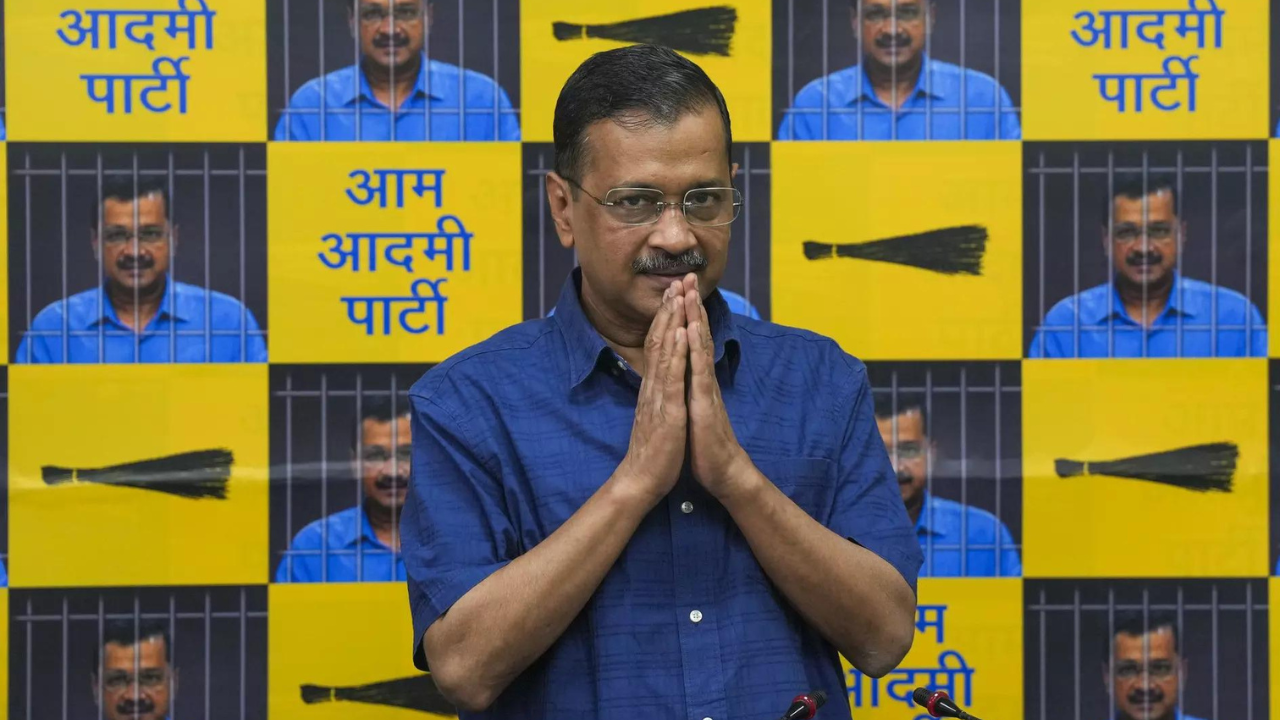New Delhi: Supreme Court Chief minister’s plea set to be heard on Monday Arvind Kejriwal challenge one delhi high court Order sustaining criminal summons issued against him defamation case Repost allegedly defamatory videos YouTuber Dhruv Rathee May 2018.
On March 11, the Supreme Court asked Kejriwal if he was willing to apologize to the complainant for the incident.
Kejriwal had told the Supreme Court on February 26 that he made a mistake by forwarding an allegedly defamatory video related to the BJP’s IT cell circulated by YouTube user Rathee.
Counsel for the complainant Vikas Sankrityayan told the Supreme Court that Kejriwal may apologize on social media platforms such as Weibo platform ‘X’ or Instagram.
On February 26, the Supreme Court, without issuing notice on Kejriwal’s plea challenging the high court order, asked the complainant whether he wanted to close the case as the complainant admitted that it was a mistake.
“I can say that I made a mistake by retweeting it,” said senior lawyer Abhishek Singhvi, appearing for Kejriwal.
The Supreme Court asked the trial court not to hear the defamation case involving Kejriwal until further orders.
The High Court said in its judgment on February 5 that anyone who forwards allegedly defamatory content will be prosecuted under the defamation law.
It said reposting unknowing content must be done with a sense of responsibility, adding that reposting defamatory content must attract criminal, civil and tort proceedings if the forwarder fails to include a disclaimer.
The high court, while refusing to quash the trial court’s 2019 order summoning Kejriwal, had said that when a public figure posts defamatory posts on Twitter, the consequences go far beyond a whisper in someone’s ear.
It said that if the act of retweeting or reposting is allowed to be abused as it is still considered an empty legal gray area, it will encourage people with malicious intent to abuse it and conveniently claim they just retweeted a tweet. .
The Chief Minister told the High Court that the trial court did not realize that his tweets were not intended to or were likely to harm the complainant.
Sankrityayan claimed that the YouTube video titled “BJP IT Cell Part II” was circulated by Rathee, who lives in Germany, and “some false and defamatory allegations were made in the video”.
On March 11, the Supreme Court asked Kejriwal if he was willing to apologize to the complainant for the incident.
Kejriwal had told the Supreme Court on February 26 that he made a mistake by forwarding an allegedly defamatory video related to the BJP’s IT cell circulated by YouTube user Rathee.
Counsel for the complainant Vikas Sankrityayan told the Supreme Court that Kejriwal may apologize on social media platforms such as Weibo platform ‘X’ or Instagram.
On February 26, the Supreme Court, without issuing notice on Kejriwal’s plea challenging the high court order, asked the complainant whether he wanted to close the case as the complainant admitted that it was a mistake.
“I can say that I made a mistake by retweeting it,” said senior lawyer Abhishek Singhvi, appearing for Kejriwal.
The Supreme Court asked the trial court not to hear the defamation case involving Kejriwal until further orders.
The High Court said in its judgment on February 5 that anyone who forwards allegedly defamatory content will be prosecuted under the defamation law.
It said reposting unknowing content must be done with a sense of responsibility, adding that reposting defamatory content must attract criminal, civil and tort proceedings if the forwarder fails to include a disclaimer.
The high court, while refusing to quash the trial court’s 2019 order summoning Kejriwal, had said that when a public figure posts defamatory posts on Twitter, the consequences go far beyond a whisper in someone’s ear.
It said that if the act of retweeting or reposting is allowed to be abused as it is still considered an empty legal gray area, it will encourage people with malicious intent to abuse it and conveniently claim they just retweeted a tweet. .
The Chief Minister told the High Court that the trial court did not realize that his tweets were not intended to or were likely to harm the complainant.
Sankrityayan claimed that the YouTube video titled “BJP IT Cell Part II” was circulated by Rathee, who lives in Germany, and “some false and defamatory allegations were made in the video”.








